Mozambique receives two million doses of BCG vaccine
Mozambique: Journalists resort to self-censorship to protect themselves
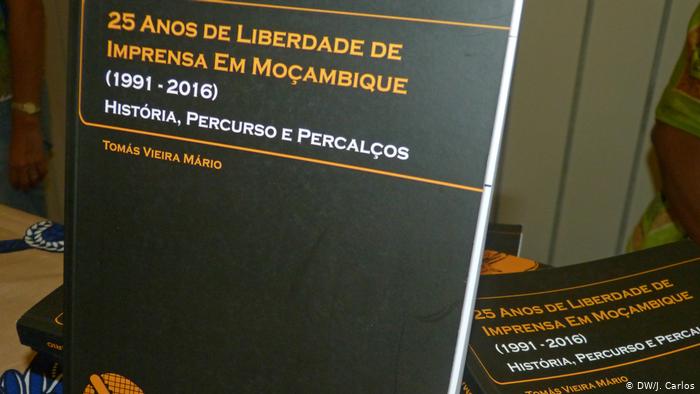
FILE - Tomás Vieira Mário's book, '25 Years of Press Freedom in Mozambique' . [File photo: DW / J. Carlos]
Mozambique marked World Press Freedom Day with journalists increasingly concerned about deteriorating conditions for the free exercise of their profession, and increased self-censorship.
The chairperson of Mozambique’s Higher Mass Media Council, Tomás Vieira Mário, told DW Africa that restrictions on the activities of media professionals had increased in the last three years as a result of the violent conflict in northern Mozambique. “The main cases of violation have to do with the media blackout in Cabo Delgado province,” he said.
“This situation is manifest in the arrest of journalists,” Tomás Vieira Mário added, noting that, in addition to the restriction on freedom of the press, journalists have been illegally detained with “outcomes that were poorly handled even at the judicial level”.
Arrests of journalists
The chairperson of the Mozambican branch of the Southern African Social Communication Institute (MISA Mozambique), Fernando Gonçalves, noted that “very recently, there was the case of a journalist in Cabo Delgado who was reporting an action was taken to a police station and the images were deleted. from his camera”.
“These actions are not worthy of a state in which press freedom is respected,” Gonçalves said, dubbing the press freedom environment in Mozambique “negative”.
Almost 20 organisations expressed concerns to President Filipe Nyusi regarding reports of violence against civilians and journalists by elements of the security forces, specifically instancing the disappearance of a journalist. The letter denounces the “harassment and intimidation” by these elements of the security forces against journalists , “simply for doing their job” in Cabo Delgado.
Journalists in Mozambique are also worried about the increase in self-censorship in the national media.
Self-censorship
Fernando Gonçalves believes that the current environment promotes self-censorship and says that some journalists are self-censoring as a way of protecting themselves. “This situation must be corrected as soon as possible”.
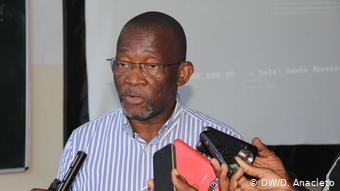
Higher Mass Media Couceil chairperson Tomás Mário says “the political, social and economic context in Mozambique instigates self-censorship”, denouncing what he describes as a kind of negative consensus among public authorities, which consists of remaining silent as regards governance actions, and claiming the “this is a form of censorship”.
Vieira Mário says that, although Mozambican media laws are quite progressive, public servants have not yet managed to change harmful practices rooted in public administration.
Violations of laws
Gonçalves says Mozambican legislation is conducive to the exercise of freedom of expression, but points to violations and abuses practiced by some public servants acting on behalf of the state.
“It is up to the state, the government, to take the appropriate measures so that these situations do not occur with the frequency we have seen,” he says.
Gonçalves argues that one of the main challenges for journalists in Mozambique is to make the authorities and all stakeholders understand that there can be no democracy without freedom of expression and the press.
In addition to the decline in the free practice of journalism, the quality of the media itself, especially of televisions, has also decreased in the last three years.
The Constitution of the Republic of Mozambique defines the Higher Mass Media Council as a disciplinary and consultative body which ensures the independence of Mozambican media, in the exercise of the rights to information, freedom of the press, as well as the rights to broadcast and right of reply.
“However, the institution has very limited and non-binding powers, which do not go beyond deliberating on moral and ethical aspects,” the organ’s chairperson, Tomás Vieira Mário says. “Our focus, at this moment, is to transform the Council into a regulatory body, with powers to inspect, sanction and supervise”.
Mozambique falls in Press Freedom Index
Mozambique slipped a notch in the Press Freedom Index, released last week (21.04) by the organisation Reporters without Borders, ranking 104 out of a total of 180 countries evaluated.
The organisation considers that the country is following a “worrying path” marked by “strong pressure” and “frequent attacks” on independent journalists, in addition to the “practical impossibility” of journalists accessing the north of the country, where armed attacks have been taking place.




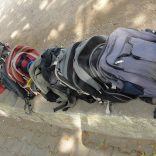

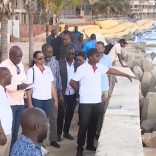
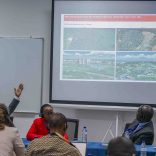




Leave a Reply
Be the First to Comment!
You must be logged in to post a comment.
You must be logged in to post a comment.